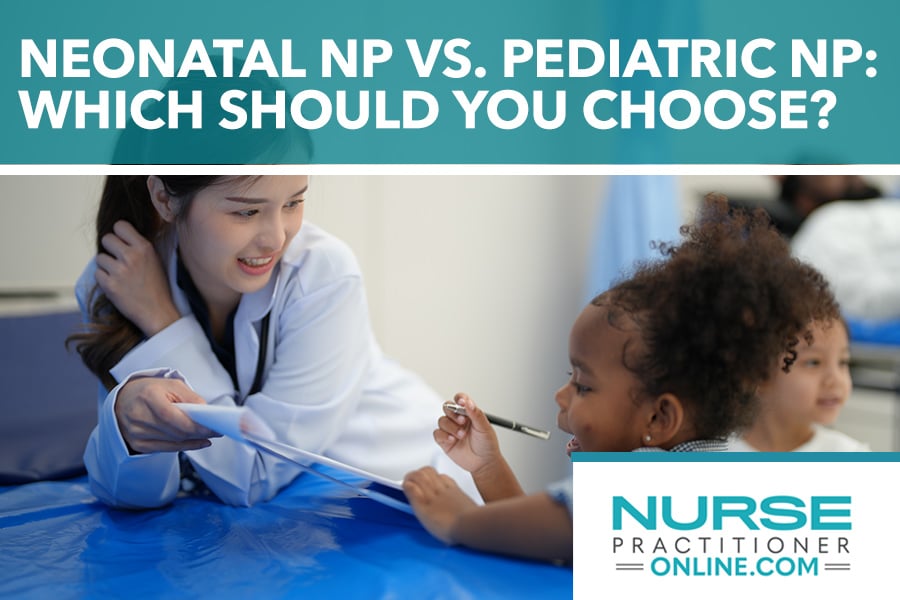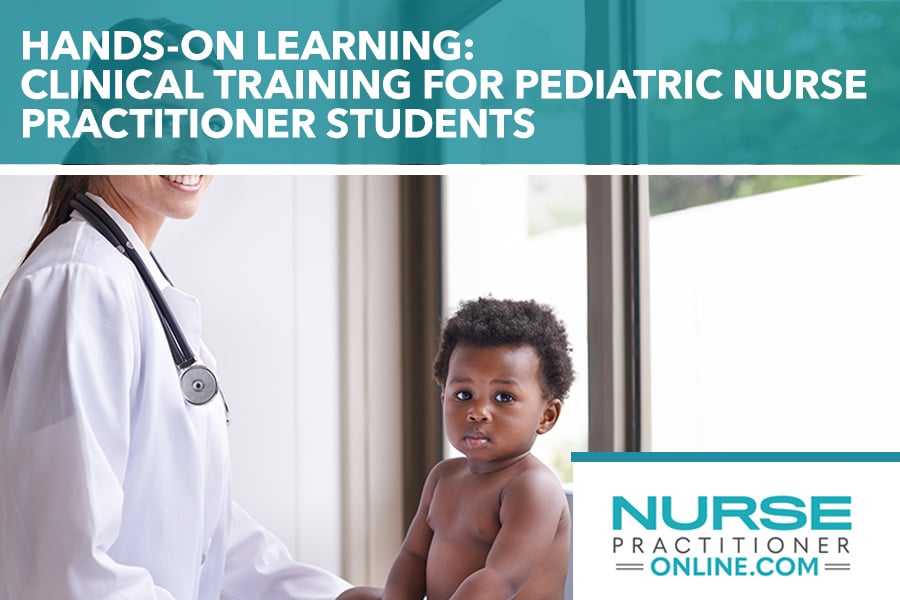The nurse practitioner (NP) profession is experiencing explosive growth, with employment expected to rise by an astonishing 45% from 2022 to 2032, according to the U.S. Bureau of Labor Statistics. Alongside strong demand, many NP specialties offer highly competitive salaries, providing a lucrative path for those seeking both career satisfaction and financial reward. In fact, the average base salary for full-time NPs was $132,050 in 2024—and certain specialties earn significantly more.
Choosing the right specialty is an essential step for any nurse practitioner looking to align their passion with their financial goals. Specialization impacts not only daily clinical responsibilities but also long-term earning potential and career satisfaction. By understanding which NP specialties are the highest paying, you can make informed decisions about your education, certifications, and career trajectory.
In this article, we'll highlight 11 of the highest-paid nurse practitioner specialties, explore why they command such strong salaries, and offer key insights into factors that influence NP income.
Highest Paid Nurse Practitioner Specialties
The field of nurse practitioner practice is incredibly diverse, offering career paths in virtually every area of medicine. Nurse practitioners today work across primary care, acute care, emergency services, mental health, surgery, anesthesia, dermatology, and more. Each specialty demands a unique set of skills, clinical expertise, and often advanced certifications beyond the standard NP degree.
Some specialties, like family practice and pediatrics, allow NPs to build long-term relationships with patients and provide comprehensive, preventive care across generations. Others, like acute care or anesthesiology, place practitioners in high-stakes environments where rapid, critical decision-making can mean the difference between life and death. Each environment offers its own rewards, challenges, and compensation levels.
Salary is one major consideration, but so too are the demands of the specialty—some of the highest-paying NP roles involve irregular hours, high patient acuity, and significant responsibility. Understanding these trade-offs can help NPs find a path that aligns not just with financial goals, but with lifestyle and professional interests as well.
Here are the 11 NP specialties offering the highest salaries, based on recent data.
1. Certified Registered Nurse Anesthetist (CRNA)
- Average Salary: $203,090 per year (BLS)
- Role Overview: CRNAs administer anesthesia during surgical procedures, deliver pain management, and provide emergency services.
- Why It Pays Well: High-risk, highly specialized role requiring exceptional expertise and often independent practice.
2. Psychiatric-Mental Health Nurse Practitioner (PMHNP)
- Average Salary: $140,000–$150,000 per year (AANP)
- Role Overview: PMHNPs diagnose, treat, and manage mental health disorders across the lifespan.
- Why It Pays Well: Rising demand for mental health services coupled with a shortage of psychiatric providers.
3. Neonatal Nurse Practitioner (NNP)
- Average Salary: $135,000–$145,000 per year
- Role Overview: NNPs provide specialized care to critically ill or premature newborns in neonatal intensive care units (NICUs).
- Why It Pays Well: High-acuity patients and specialized neonatal training required.
4. Orthopedic Nurse Practitioner
- Average Salary: $130,000–$140,000 per year
- Role Overview: Orthopedic NPs assist with diagnosing, treating, and managing musculoskeletal conditions and injuries.
- Why It Pays Well: Growing orthopedic needs in an aging population and surgical assistance responsibilities.
5. Cardiology Nurse Practitioner
- Average Salary: $125,000–$135,000 per year
- Role Overview: These NPs manage patients with cardiovascular conditions such as hypertension, heart disease, and arrhythmias.
- Why It Pays Well: Chronic disease management expertise and life-saving interventions.
6. Oncology Nurse Practitioner
- Average Salary: $125,000–$135,000 per year
- Role Overview: Oncology NPs diagnose and manage patients undergoing cancer treatments like chemotherapy and radiation.
- Why It Pays Well: Specialized knowledge and emotionally demanding patient care.
7. Emergency Nurse Practitioner (ENP)
- Average Salary: $120,000–$130,000 per year
- Role Overview: ENPs provide urgent, emergent care in hospitals and urgent care settings.
- Why It Pays Well: High-stress environment requiring rapid decision-making and broad clinical skills.
8. Acute Care Nurse Practitioner (ACNP)
- Average Salary: $120,000–$130,000 per year
- Role Overview: ACNPs care for critically ill or injured patients, often in ICUs or hospital settings.
- Why It Pays Well: Managing complex, high-acuity cases demands advanced clinical skills.
9. Dermatology Nurse Practitioner
- Average Salary: $120,000–$130,000 per year
- Role Overview: Dermatology NPs diagnose and treat skin conditions, perform minor surgical procedures, and offer cosmetic services.
- Why It Pays Well: High demand for both medical and aesthetic dermatology services.
10. Pediatric Nurse Practitioner (PNP)
- Average Salary: $115,000–$125,000 per year
- Role Overview: PNPs provide healthcare services to infants, children, and adolescents.
- Why It Pays Well: Specialized focus on the unique healthcare needs of young populations.
11. Family Nurse Practitioner (FNP)
- Average Salary: $110,000–$120,000 per year
- Role Overview: FNPs offer primary care across the lifespan, diagnosing and treating a broad spectrum of conditions.
- Why It Pays Well: Versatile, wide-reaching role with options in private practice, urgent care, and hospital settings.
Before you choose a specialty based solely on salary, it’s important to understand the broader factors that impact nurse practitioner earnings. Geography, level of experience, additional certifications, and type of employer can all influence your ultimate compensation. Evaluating these factors alongside specialty selection can help you maximize your earning potential while aligning your career with your personal and professional goals.
Factors Influencing NP Salaries
While specialty selection plays a primary role in determining salary, additional factors can significantly affect earning potential.
- Geographic Location: Urban centers and certain states (e.g., California, New York) offer higher salaries.
- Experience: Seasoned NPs can earn substantially more than entry-level practitioners.
- Certification and Education: Dual certifications or doctoral-level education (DNP) often boost earnings.
- Practice Setting: Hospital-based roles and specialty clinics generally pay more than community health centers.
Understanding these factors can help you strategically position yourself for higher earnings.
Salary Range by Region
Location has a direct impact on nurse practitioner salaries. Here's how average earnings compare by U.S. region:
| Region | Average NP Salary |
| West | $133,000 |
| Northeast | $125,000 |
| Midwest | $120,000 |
| South | $115,000 |
(Source: AANP 2023 Salary Report)
Salaries can also fluctuate based on cost of living, local healthcare demand, and regional workforce shortages. Aspiring NPs may want to consider relocation as a strategy for maximizing their earning potential, especially if they are open to practicing in high-demand rural or underserved areas where incentives and bonuses are often available.
Prepare for a High-Earning NP Career
Choosing the right nurse practitioner specialty can significantly impact your future earnings and job satisfaction. Whether you aspire to work in anesthesia, mental health, or acute care, there are rewarding, high-paying opportunities across the healthcare landscape.
Ready to take the next step? Explore top NP programs and certification pathways to launch or advance your nurse practitioner career today.








